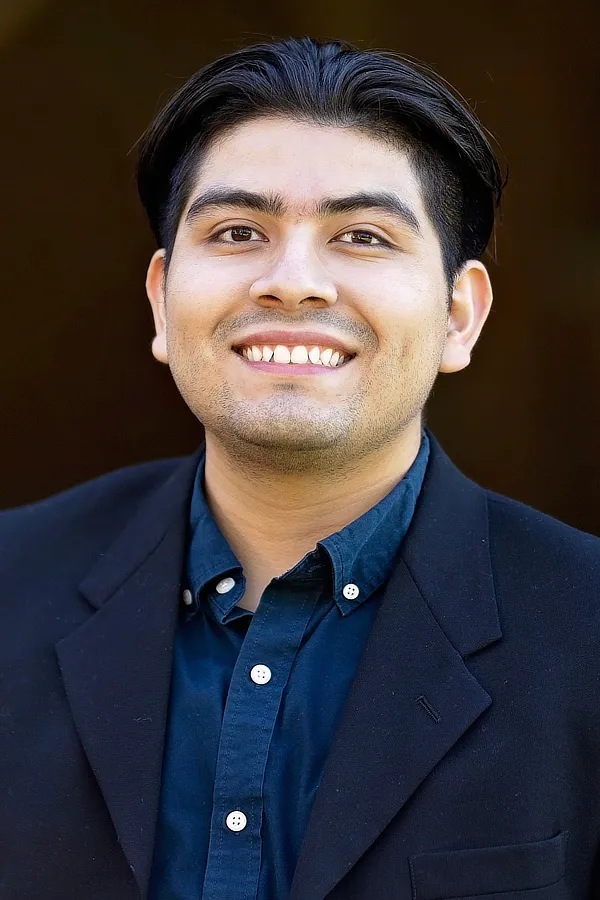-
Menu
- Home
- About
- Academics
- Admission
- Athletics
- Event Calendar
- Giving
- News & Media
- Samford Communities
- Student Life

Core Texts
For books are more than books, they are the life, the very heart and core of ages past, the reason why men worked and died, the essence and quintessence of their lives. Marcus Tullius Cicero
The Core Texts Program is a two-semester experience taken during the first year at Samford and serves as a cornerstone of the Samford Commons. In these courses, students engage classic texts of major cultural significance while exploring enduring questions about the human condition, justice, meaning and humanity’s place in the world.
Through close reading, thoughtful discussion and guided conversation with expert faculty, students develop the habits of critical thinking and reflection that shape their entire college experience. Rather than prescribing what to think, Core Texts challenges students to think deeply, ask better questions and engage ideas that continue to shape Christian faith and the modern world. This shared academic experience lays a strong intellectual foundation that supports every major and encourages lifelong curiosity and wisdom.
Our Philosophy
Four words summarize our philosophy in the Core Texts Program: Quaestio, Disputatio, Fides and Ratio.
Inquiry (Quaestio)
We teach you how to ask questions.
Discussion (Disputatio)
We believe dialogue and discussion foster intellectual engagement.
Faith (Fides)
We believe in the Christian faith to understand our nature, hope and purpose.
Reason (Ratio)
We work to develop students’ capacity to reason well and think critically.
Inquiry, discussion, faith and reason reveal what makes us human. From its earliest inception, higher education pursued questions and answers that transmitted values from generation to generation. Many contemporary college and university curriculums neglect this pursuit. Samford's Core Texts Program equips our students with an intellectual narrative that will help them navigate the modern world's complicated marketplace of ideas. Additionally, we connect that rich narrative to the Christian intellectual tradition so that students are better able to see faith and reason as interconnected parts of the human experience.
Transformative Experiences
The Core Texts Program offers enriching learning opportunities that encourage your intellectual development in your first year of college.
Core Texts London
Rising sophomores nominated by faculty are invited to apply for this selective program, which offers the opportunity to study and discuss foundational works in history, philosophy and literature while exploring the vibrant historic city of London, where many of these ideas were written and debated. Your generosity can help support exceptional students as they engage in this transformative academic and cultural experience. By supporting the Core Texts London Program, you are investing in future leaders who will draw from this life-changing opportunity throughout their lives and careers. Donations directly support student scholarships, faculty engagement and the preservation of unique learning opportunities that align with Samford’s mission of fostering knowledge, faith and purpose.
Athens and Rome
Samford's Howard College of Arts and Sciences Department of Classics and Philosophy offers a spectacular three-week educational experience in Greece and Italy, where students can immerse themselves in the cultures that shaped the foundational literature of Western civilization. Through this program, students are introduced to the history and culture of Greece and the Greco-Roman world by exploring the geography, physical remains, and museum artifacts of these historic regions. By participating, students gain a deeper understanding of the ancient world and its enduring influence on modern society while engaging in a transformative academic and cultural journey.

"We read about specific events that occurred in London, and afterward, we would tour the real-life locations where those events took place. You cannot get that experience with any typical history-related course."—Jose Ocampo '25
Fall Curriculum
During the fall semester, you are introduced to great thinkers from the Greeks, the Romans, Early Christianity, the Middle Ages and the Renaissance and the Protestant Reformation. Central texts include:
Greece and the Ancient World
- Homer, The Iliad
- Greek Tragedy: Aeschylus, Euripides, Sophocles, Aristophanes
- Herodotus, Histories
- Plato, Republic, Death of Socrates
- Aristotle, Nicomachean Ethics, Politics
Rome and Early Christianity
- Vergil, The Aeneid
- Cicero, Defense Speeches
- Seneca, Selected Letters
- Augustine, Confessions, The City of God
- The Passion of Perpetua and Felicitas
Middle Ages
- Benedict of Nursia, Rule of Saint Benedict
- Selections from The Quran
- Thomas Aquinas, Summa Theologica
- Marie de France, The Lais
- Julian of Norwich, Revelations
- Dante, The Divine Comedy
Renaissance and Reformation
- Giovanni Pico Della Mirandola, Oration on the Dignity of Man
- Niccolo Machiavelli, The Prince
- Martin Luther, Concerning Christian Liberty
- John Calvin, The Institutes of the Christian Religion
- Teresa of Avila, The Interior Castle
101 Asian World Core Texts
- Confucius, The Analects
- Siddhartha Gautama, The Path to Enlightenment
- Buddhist Nuns, Therigatha
- Lao Tzu, Tao-te Ching
Spring Curriculum
Spring semester takes you through the age of European explorations, the Scientific Revolution, the Enlightenment and the ideological foment of the nineteenth and twentieth centuries. Central texts include:
New Worlds
- Michel de Montaigne, Essais
- Shakespeare, play selected by professor
- Francis Bacon, Novum Organum
- René Descartes, Discourse on Method
- Margaret Fell, Women Speaking
Enlightenment
- Thomas Hobbes, Leviathan
- John Locke, Second Treatise On Government
- Jean Jacques Rousseau, The Social Contract
- Thomas Paine, Common Sense, Age of Reason
- Mary Wollstonecraft, A Vindication of The Rights of Woman
Nineteenth Century
- Alexis de Tocqueville, Democracy in America
- Karl Marx, Communist Manifesto
- Elizabeth Cady Stanton, Declaration of Sentiments
- Frederick Douglass, The Meaning of the Fourth of July to the Negro
- Charles Darwin, Origin of Species
- Friedrich Nietzsche, Genealogy of Morals
- A novel and/or poetry selected by the professor
Twentieth Century
- W.E.B. DuBois, The Souls of Black Folks
- Virginia Woolf, A Room of One’s Own
- Sigmund Freud, Civilization and Its Discontents
- Gandhi, selected writings
- C.S. Lewis, The Abolition of Man
- Martin Luther King, Jr., Letter from Birmingham Jail
- Edward Said, Orientalism
- Alexander Solzhenitsyn, A World Split Apart
- A novel and/or poetry selected by the professor
Cookie Preferences | Privacy Policy | Software Plugins
Microsoft Excel®
Microsoft Power Point®
Microsoft Word®
Adobe Portable Document Format

